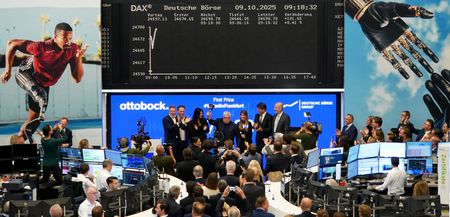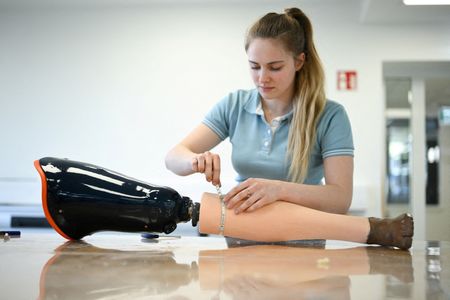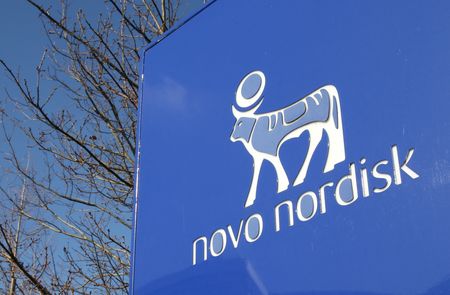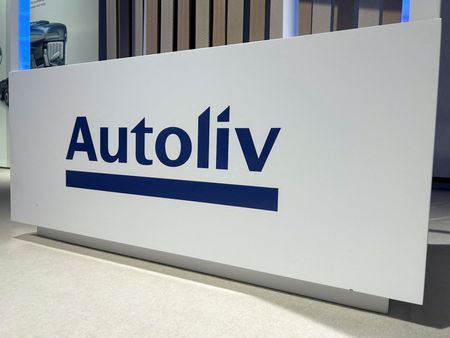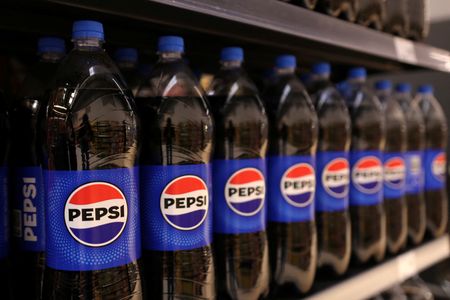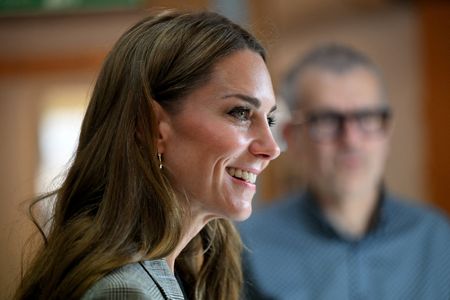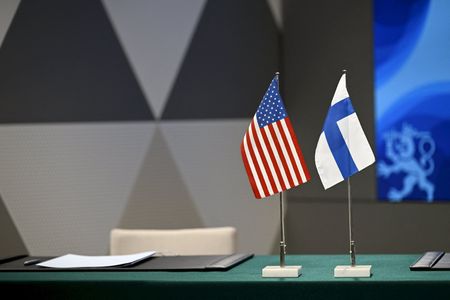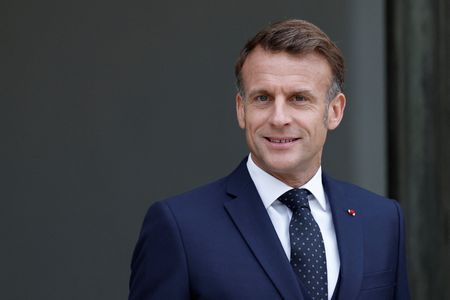By Charlie Conchie
FRANKFURT -German prosthetics firm Ottobock began trading on the Frankfurt Stock Exchange at 72 euros ($83.61) per share on Thursday, exceeding its offer price in the country’s largest initial public offering in more than a year.
The world’s leading manufacturer of artificial limbs planned to raise about 808 million euros through the IPO.
The share issue initially valued the company at 4.2 billion euros based on the offer price of 66 euro apiece, but shares posted a 5.5% gain, trading at 69.65 euros at 0828 GMT.
Ottobock will receive 100 million euros from the offering, with the remaining proceeds going to the founding Naeder family, which will retain more than 80% of the shares, according to the prospectus.
The IPO comes amid a rash of new listings across Europe in recent weeks, which have buoyed dealmakers after a dearth of activity over the past two years.
Since September, Swiss Marketplace Group debuted in Zurich, Verisure floated in Stockholm with a 13.7 billion euros valuation, and the London Stock Exchange hosted listings for U.S. energy firm Fermi and Beauty Tech Group.
Ottobock’s listing marks the company’s second attempt to go public, after shelving its first effort in 2022 following Russia’s invasion of Ukraine. The offering is Germany’s largest since retailer Douglas went public in March last year.
Hamburg-based billionaire Klaus Michael Kuehne and a fund managed by U.S. asset manager Capital Group acted as cornerstone investors on the deal.
A chunk of the proceeds is expected to be used by the Naeder family to repay a loan from private credit funds, which was taken to buy back a stake in the company from Swedish private equity investor EQT last year, according to the IPO prospectus.
The family will still owe the financiers around one billion euros and has until the first quarter of 2030 to pay back the debt, the prospectus showed.
While the family’s stake has been reduced to 81% in the IPO, they are expected to further cut their holdings to 70-75% after the end of a 180-day lock-up period, sources previously told Reuters.
Ottobock, also a global leader in braces that support a patient’s mobility known as orthoses, has grown rapidly in recent years on the back of a number of acquisitions and new product launches.
The war in Ukraine has also driven rising demand for its products, Ottobock CEO Oliver Jakobi told Reuters in 2022. The company sold roughly double the number of foot prosthetics in the second half of 2022 compared to the entirety of 2021, Jakobi said.
Ottobock, however, has faced scrutiny over its continued operations in Russia since the invasion. In the first half of this year, more than 8% of its sales were generated in the country. Medical products are not subject to Western sanctions, making the business legally permissible.
Among the group’s areas of prospective growth, it is investing in exoskeletons that help workers lift weights as well as in bionic devices that pick up electric nerve signals in residual limbs to give patients intuitive control over their prosthetics.
($1 = 0.8611 euros)
(Reporting by Charlie Conchie, Editing by Kirsti Knolle, Ludwig Burger and Jacqueline Wong)

